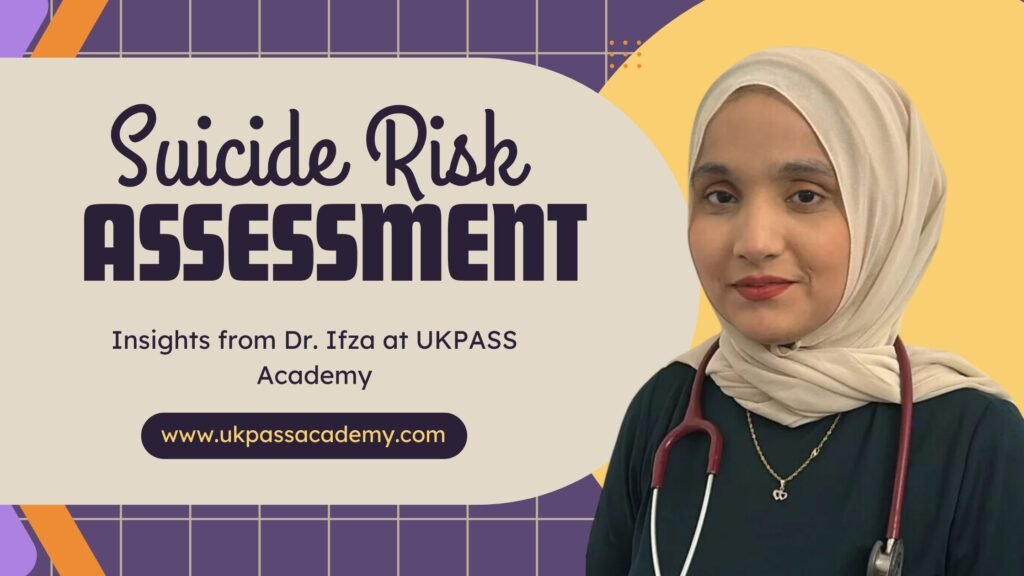Hello future doctors preparing for PLAB 2! Dr. Ifza here, and today we’re diving into a critical aspect of psychiatric care: assessing suicide risk. This skill is not only essential for exams but also pivotal for your future clinical practice. Let’s explore how to navigate this sensitive area effectively.
Understanding Suicide Risk Assessment
Assessing suicide risk involves a structured approach to gather information and make informed decisions:
- Initial Engagement: Establish rapport and create a supportive environment where the patient feels comfortable sharing their thoughts and feelings.
- Open Dialogue: Encourage the patient to express their emotions and thoughts without judgment, facilitating honest communication.
Case Study Analysis: Practical Application
Let’s analyze a case study to apply these principles effectively:
- Patient Context: Mrs. Christine Edwards, recently bereaved and experiencing significant emotional distress.
- Presenting Concern: Mrs. Edwards took an overdose of paracetamol following her husband’s death.
Steps in Suicide Risk Assessment
Here’s how to approach suicide risk assessment based on the interaction:
- Identifying Risk Factors: Explore personal and situational factors such as recent losses, psychiatric history, substance use, and access to means.
- Assessing Protective Factors: Identify factors that mitigate suicide risk, such as supportive relationships, coping skills, and reasons for living.
Key Strategies for PLAB 2 Success
Preparing for PLAB 2 requires mastering these essential strategies:
- Structured Interview: Use structured questions to assess suicidal thoughts, plans, intent, and past attempts.
- Safety Planning: Collaborate with patients to develop safety plans including coping strategies, social supports, and crisis contacts.
Multidisciplinary Collaboration
In complex cases involving suicide risk, collaboration is crucial:
- Involving Mental Health Specialists: Consult with mental health professionals for comprehensive assessment and management of suicidal patients.
- Crisis Intervention Teams: Engage crisis intervention teams for immediate support and safety planning.
Ethical and Legal Considerations
Navigating ethical and legal considerations is integral:
- Risk Management: Develop risk management strategies tailored to the patient’s needs, including hospitalization if necessary.
- Confidentiality: Balance patient confidentiality with the need to involve family members or caregivers for safety reasons.
Conclusion: Embracing Comprehensive Care
Mastering suicide risk assessment requires empathy, skill, and a patient-centered approach. At UKPASS Academy, you’ll hone these skills through interactive training and simulated scenarios, preparing you to handle challenging psychiatric assessments with confidence and competence.
Remember, each patient encounter offers an opportunity to make a positive impact. By mastering suicide risk assessment, you’ll contribute to better patient outcomes and provide compassionate care in your future practice.
Stay committed to learning and growth, and you’ll be well-prepared to excel in PLAB 2 and beyond.
Best wishes on your PLAB 2 journey! Stay tuned for more insights and strategies from UKPASS Academy.
Dr. Ifza

